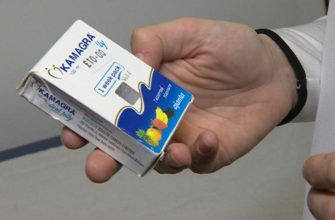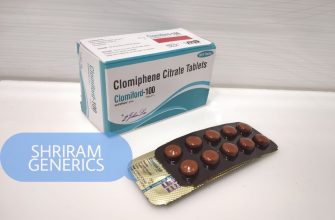Considering Roaccutane (isotretinoin) for acne? You’re likely seeking a lasting solution. This powerful medication can significantly improve severe acne when other treatments fail. Expect a journey that demands commitment and diligent monitoring. Doctors usually prescribe Roaccutane only after exploring alternatives because of its potential side effects. We will explore the necessary tests and precautions.
Before you begin, understand that regular blood tests are non-negotiable. These monitor liver function and cholesterol levels, ensuring your body handles the medication properly. Expect dry skin – invest in a high-quality, fragrance-free moisturizer. Lip balm becomes your new best friend, preventing cracked, painful lips. Sun protection is critical; Roaccutane increases sensitivity to sunlight, so use a broad-spectrum sunscreen with an SPF of 30 or higher daily.
Pregnancy is a strict contraindication while taking Roaccutane. Women must use two forms of birth control, and pregnancy tests are a standard procedure. Discuss this thoroughly with your dermatologist; transparency is key. Roaccutane dosages vary depending on your weight and the severity of your acne. Your doctor personalizes your treatment plan, aiming for a cumulative dose that increases the likelihood of long-term clearance. Be prepared for an initial breakout – this is common as the medication starts working.
Roaccutane Acne Treatment: A Comprehensive Guide
Consider Roaccutane if other acne treatments have failed; it often provides lasting results. You’ll take the medication orally, usually once or twice daily, for a course lasting 4-6 months. Your dermatologist will determine the exact dosage based on your weight and the severity of your acne.
Understanding Potential Side Effects
Roaccutane use can lead to dry skin and lips. Keep a hydrating balm nearby and apply it frequently throughout the day.
- Dry Eyes: Use lubricating eye drops several times a day to maintain comfort.
- Sun Sensitivity: Wear sunscreen with an SPF of 30 or higher daily, even on cloudy days.
- Muscle and Joint Pain: Engage in low-impact exercises. Discuss persistent pain with your doctor.
Remember, Roaccutane can cause birth defects. Women must use two forms of contraception starting one month before treatment, continuing throughout treatment, and for one month after stopping. Your doctor will require regular pregnancy tests. Men should also understand the implications of Roaccutane treatment and adhere to their doctor’s advice.
Maximizing Treatment Success
- Follow Your Dermatologist’s Instructions: Adherence is key to successful treatment.
- Attend Regular Check-ups: Monitor your progress and manage any side effects effectively.
- Avoid Waxing and Laser Treatments: Your skin will be more sensitive during treatment.
Roaccutane treatment might temporarily worsen acne initially. Persevere, as this is often a sign the medication is working. Stay in close communication with your dermatologist throughout the process. They can guide you through potential challenges and adjust your treatment plan if needed.
Is Roaccutane Right For You?
Roaccutane is generally considered a suitable option if you have severe acne that hasn’t responded to other treatments, like topical creams or antibiotics. Before moving forward, your dermatologist will evaluate the type and severity of your acne, your medical history, and any medications you’re currently taking. This evaluation determines if Roaccutane is a safe and appropriate treatment for you.
Consider the potential side effects. Roaccutane can cause dry skin, chapped lips, and dry eyes. More seriously, it can impact your liver function and raise cholesterol levels. If you have a history of depression or suicidal thoughts, discuss this with your doctor before starting treatment, as Roaccutane has been linked to mood changes in some individuals. Women who are pregnant or may become pregnant should not take Roaccutane due to the high risk of severe birth defects. A strict birth control program is required during treatment.
Alternative Options
Explore other treatments first. If your acne is mild to moderate, options like benzoyl peroxide, salicylic acid, or prescription retinoids might be sufficient. Some people find relief with laser therapy or chemical peels. Consult with your dermatologist to determine the best approach for your specific needs.
Weighing the Benefits
Roaccutane offers the potential for long-term acne clearance, preventing scarring and improving your quality of life. A full course usually lasts about four to six months, after which many people experience significant improvement or complete remission of their acne. If you’re struggling with severe, persistent acne that impacts your mental health and self-esteem, and other treatments haven’t worked, Roaccutane might be the right choice. Have an open dialogue with your dermatologist. Their guidance, coupled with a careful evaluation of potential risks, ensures you make an informed decision.
Managing Roaccutane Side Effects
Combat dry skin by applying a fragrance-free, oil-based moisturizer multiple times daily. Focus particularly on areas like your face, hands, and lips, which are more prone to dryness.
Address chapped lips with a thick balm containing ingredients like petroleum jelly or beeswax. Reapply frequently, especially before sleeping, to create a protective barrier overnight.
Minimize sun sensitivity by wearing a broad-spectrum sunscreen with an SPF of 30 or higher daily. Reapply every two hours when exposed to sunlight, and consider wearing protective clothing like hats and long sleeves.
If you experience dry eyes, use lubricating eye drops several times a day. Consult your doctor if dryness persists, as they may recommend prescription options.
Reduce nosebleeds by keeping the nasal passages moist. Use a saline nasal spray or apply a small amount of petroleum jelly inside the nostrils before bed.
To alleviate muscle aches, try gentle stretching exercises and stay hydrated. Talk to your doctor about over-the-counter pain relievers if discomfort becomes significant.
Manage fatigue by prioritizing sleep and maintaining a balanced diet. Avoid strenuous activities and listen to your body, resting when needed.
If mood changes occur, discuss them with your doctor immediately. Roaccutane can sometimes impact mental health, and early intervention is beneficial.
Avoid waxing, dermabrasion, and laser treatments during and for six months after completing Roaccutane treatment, as these can increase the risk of scarring.
Regular blood tests are necessary to monitor liver function and cholesterol levels. Attend all scheduled appointments to ensure safe and proper treatment.






